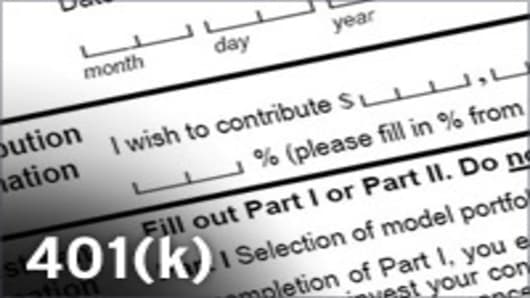From that pool, workers would be paid a guaranteed 3 percent a year indexed to inflation.
The change would encourage workers not to hang on to jobs longer than planned.
Because their returns would be guaranteed, workers would be able to retire on schedule, she said.
"We need people to retire when the economy tanks in order to keep up aggregate demand and to reduce pressure on the labor market. And the only way to do that is to unhook the finance markets from retirement income," she told Reuters.
But she doubts Miller will adopt her blueprint in full.
"He wants to make 401(k)s better. He doesn't want to kill the tax deduction. In my favor, he agrees I brought up genuinely credible criticisms of the 401(k) tax break as it exists now." But Democrats may draw from parts of her proposal.
"The Democrats are looking at two paths," she said.
"One is to make the 401(k) system, which is commercial and individualized, more fair, but not do anything to expand coverage or guarantee returns." The other path is to broaden coverage and guarantee returns. "I think the compromise will be a voluntary guaranteed retirement account. So that if people don't have a 401(k), or want a better alternative to a 401(k), they could put their money into a government-guaranteed fund."
More From CNBC.com
Legendary investor John Bogle, founder of No. 2 U.S. mutual fund company Vanguard Group, expects "a whole package of financial reform" from a Democratic White House that could affect the mutual fund industry by seeking to crack down on the high fees charged by some managers.
He did not comment specifically on retirement savings, but the fund industry faces pressure to disclose fees and account for returns of the 401(k) plans they manage.
"There is going to be a closer look at 401(k)s," said Russel Kinnel, director of fund research at market research company Morningstar, adding that this would reflect a general tightening of regulations in the financial industry in the wake of weeks of turmoil in global markets.
He said economic reforms proposed by President-elect Barack Obama that include raising capital-gains and dividend tax rates also offer an opportunity for mutual fund companies to press lawmakers to bring the industry in line with stock investors who pay tax on capital gains only when profits are realized.
Currently, many mutual funds held in taxable accounts—rather than tax-favored retirement accounts such as 401(k)s—are forced to pay tax on capital-gains distributions even if their investments sour and make losses.
"One of the things the mutual fund industry has wanted for some time is to have that mutual fund tax disparity eliminated," Kinnel said. "If Congress is revisiting capital gains, possibly this would be an opportunity for the fund industry get that on the table."



